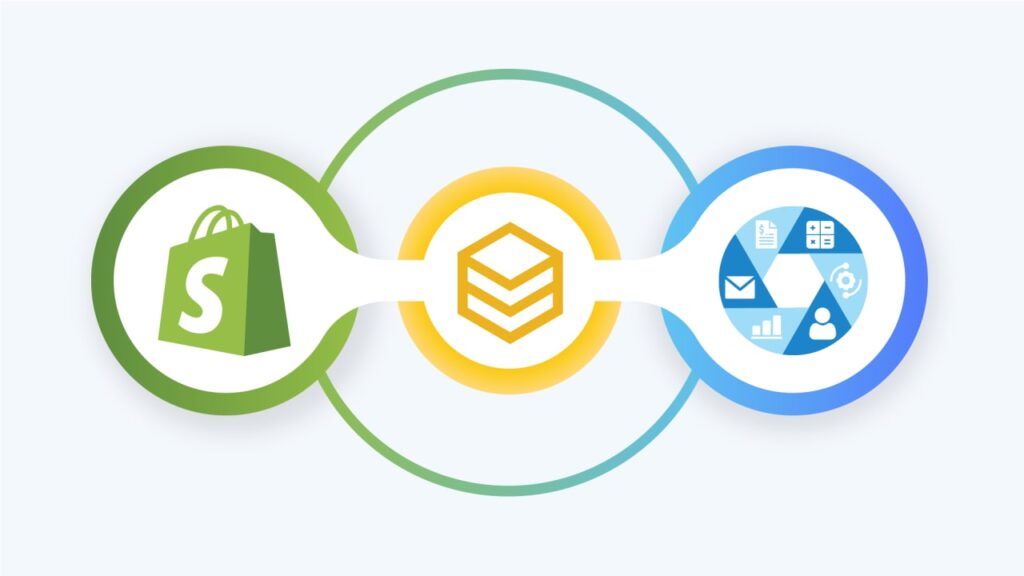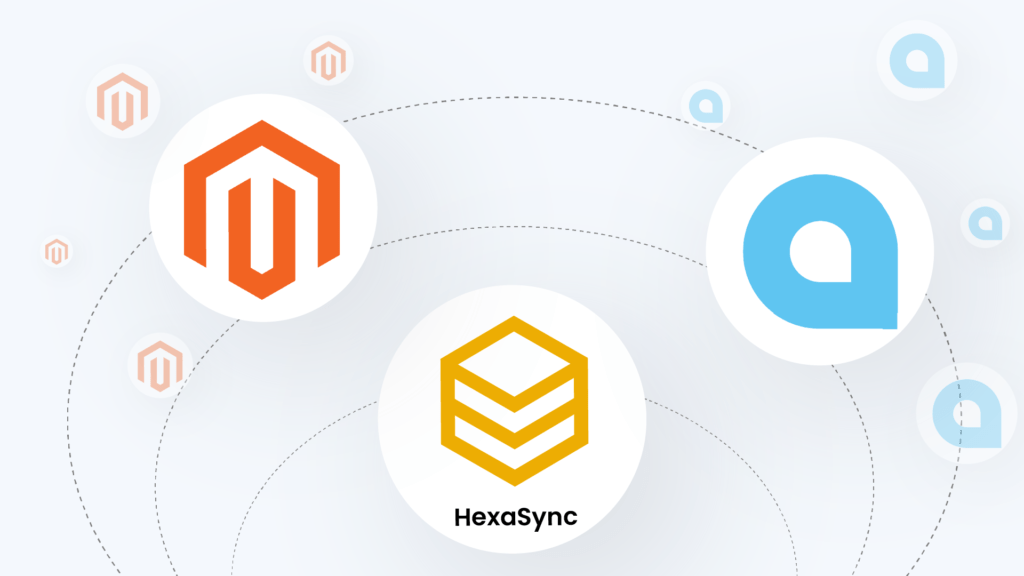Table of Contents
Microsoft Dynamics 365 Overview
Microsoft Dynamics 365 is a set of cloud-based business applications that address different aspects of business operations. Dynamics 365 is designed to streamline and integrate business processes, enhance productivity, and provide actionable insights to drive informed decision-making. It includes various ERP and CRM tools, such as
- Dynamics 365 Business Integration
- Dynamics 365 Finance
- Dynamics 365 Supply Chain Management
- Dynamics 365 Field Service
- Dynamics 365 Project Operation
- Dynamics 365 Customer Insight
- Dynamics 365 Marketing
- Dynamics 365 Customer Service
- Dynamics 365 Sales
Microsoft Dynamics 365 Integration Definition

Integration is considered a powerful Microsoft Dynamics 365 feature. It refers to the capability of connecting and syncing data in D365 with other systems, applications, or platforms. Microsoft Dynamics 365 integration can help organizations automate business processes, maximize data values, and improve productivity.
Depending on the business goals and capabilities, the leaders will choose one or more integration types. It includes:
- Data Integration: Integrating Dynamics 365 with other data warehouses, databases, or data from third-party applications
- Application Integration: Connecting Dynamics 365 with other business apps or extensions
- IoT Integration: Connecting Dynamics 365 with the Internet of Things devices or platforms
Benefits of Microsoft Dynamics 365 Integration
With flexible integrated capabilities, Microsoft Dynamics 365 offers various benefits for users to automate business processes, improve products and services, and drive operational efficiency. Some key advantages of Dynamics 365 Integration:
- Enhanced data accuracy and consistency: Every change in information will be automatically updated and reflected in all systems, reducing human errors and manual data entry.
- Improved productivity and efficiency: Reducing manual tasks helps employees focus on important tasks to increase productivity and profits.
- Streamlined workflows and processes: Workflows and business processes can be optimized and automated, decreasing bottlenecks, boosting process visibility, and increasing overall efficiency.
- The single view of data: Users can gain a comprehensive perspective of business data, such as leads, sales, customers, warehouses, etc.
- Real-time integration: All data is synced and updated between connected systems in real-time.
- High Scalability and flexibility: Organizations can scale their systems by quickly adding new applications or features and reacting to changing business requirements.
- Future-proofing and innovation: Organizations might discover new possibilities and promote digital transformation by integrating IoT devices, AI platforms, or other cutting-edge technology.
Kinds of Dynamics 365 Integration
As we mentioned above, organizations can integrate Microsoft Dynamics 365 applications with other data, applications, extensions, systems, or platforms. Let’s take a look at some types of Dynamics 365 integration that we summarize below.
Dynamics 365 eCommerce Integration
It’s designed for users who build their online store on an eCommerce platform. Dynamics 365 eCommerce Integration allows businesses to manage their store data between Dynamics 365 apps and the eCommerce platform, such as product catalogs, orders, inventory, customers, etc.
Organizations can connect and synchronize Dynamics 365 with popular eCommerce platforms, including
Shopify Dynamics 365 Integration
BigCommerce Dynamics 365 Integration
WooCommerce Dynamics 365 Integration
Magento Dynamics 365 Integration
Haravan Dynamics 365 Integration
Dynamics 365 POS Integration
The same as Dynamics 365 eCommerce Integration, it refers to the process of integrating Microsoft Dynamics 365 applications with POS systems. Dynamics 365 POS integration allows businesses to manage their sales operations, including inventory, sales, payment, customers, etc. Some of the POS systems that users can implement the integration
Magestore Dynamics 365 Integration
Challenges of Microsoft Dynamics 365 Integration
Besides the benefits of Microsoft Dynamics 365 Integration, there are also different challenges that users need to overcome during the integration process.
- Technical Complexity: MS365 Integration requires the high expertise of a technical to implement, such as APIs or data transformation.
- Data Mapping and Transformation: Implementation of integration requires performers to map and transform data accurately, especially with complex data models and sync rules.
- System Dependencies and Upgrades: The updated versions of integrated elements may impact compatibility and disrupt business processes.
- Security and Access Control: It requires the implementation of integrated, robust authentication mechanisms and data encryption.
- Cost and Time: Integration projects often require investment in terms of time, resources, and costs to develop the integration tools or use the third-party service.
Automatic Business Processes with the HexaSync Integration Platform
HexaSync is a platform that offers an integrated solution for businesses. It facilitates accessing, connecting, and syncing data between two or more applications to automate business processes. Working as middleware, the HexaSync platform helps organizations streamline operations by connecting legacy systems with modern SaaS applications via APIs and access tokens.

One of the most useful HexaSync features allows businesses to monitor data. It means that users can see exactly how data flows from source to destination. They can even detect problems during the integration process and handle them promptly if they are not technical.
Conclusion
In conclusion, Dynamics 365 Integration facilitates businesses to focus on valuable tasks for growth and reduces almost all manual data entry. It offers significant benefits but also has challenges for thorough consideration. By using the HexaSync integration platform to connect and sync data between Dynamics 365 and other systems, your business can leverage all the advantages of Dynamics 365 Integration and limit its difficulty.
We hope that you can get some valuable information from this article. If you have any questions related to general integration requirements or the integration capabilities of Microsoft, please feel free to contact us.















































